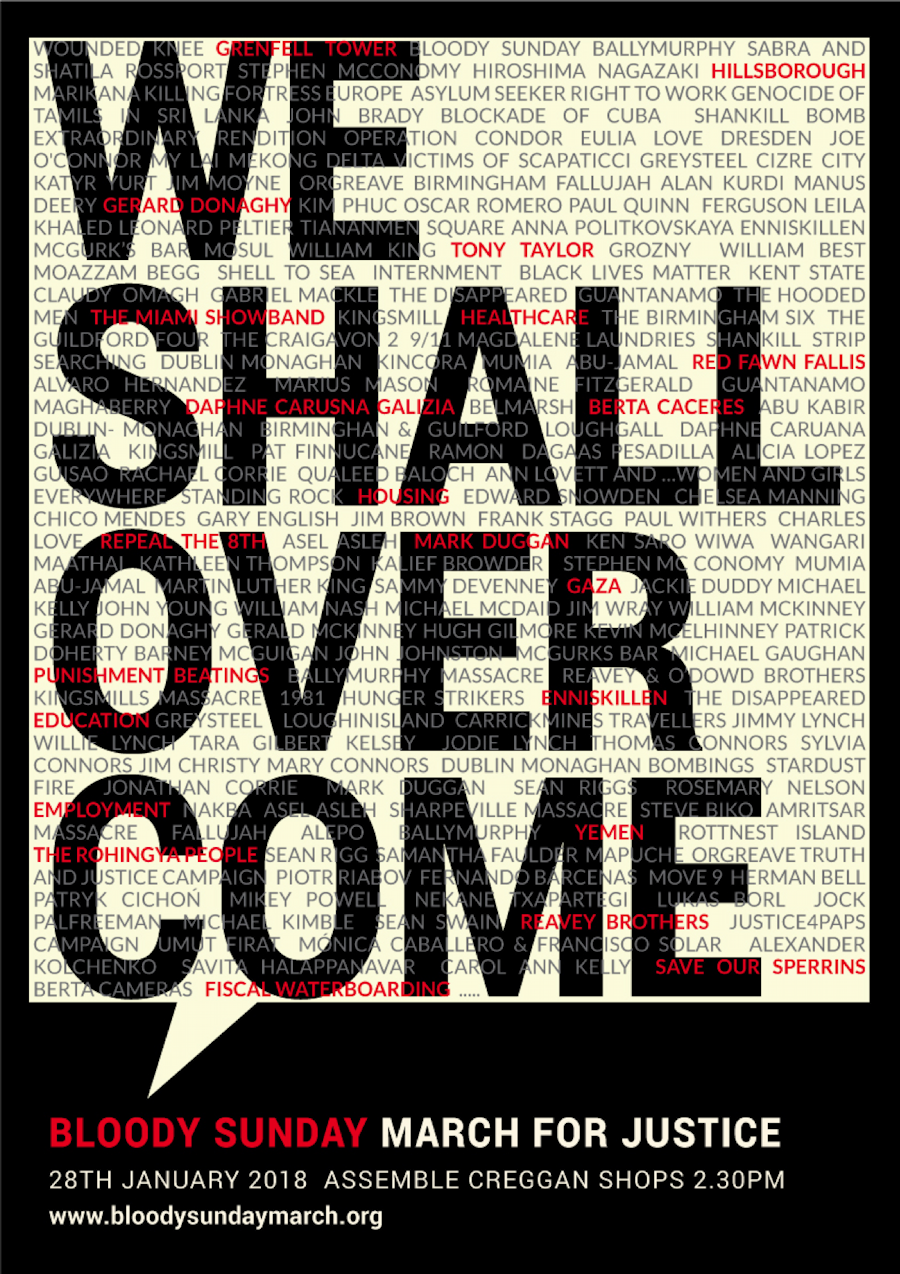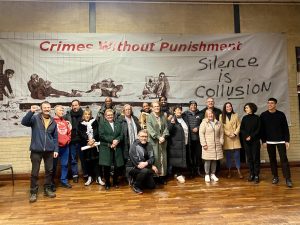Bloody Sunday Programme 2018
17 December 2017

Context 2018
Bloody Sunday was a local event. All of the 28 dead and wounded came from the general Bogside/Creggan quarter of Derry, population around 35,000. There was no one in the area who didn’t know the family of at least one of the victims. The massacre was experienced as a communal wound, the pain of which still throbs and won’t ease until all of the families can feel that truth has been told and justice done.
It is this which, 46 years later, drives the annual commemoration.
Bloody Sunday differs from the other massacres in the North which stand like grave-stones marking the passing of the years of conflict. The killing took place in bright daylight, watched at close quarters by hundreds of local people who had earlier marched for civil rights, stunned by horror, outrage and grief inflicted by men uniformed to represent the British State.
Bloody Sunday cannot be put down to ancient Irish hatreds. It was rooted in imperial history, in the scorn of Empire for the lives of plain people and the ferocious rage of the ruling class at any uprising of the lower orders. Hence the Tory Government’s sigh of relief in 2010 when the Inquiry under Lord Saville pointed the finger of blame at a bunch of squaddies and one undisciplined officer.
Parties jostling for political advantage and wishing the issue over and done with embraced Saville’s conclusions as full and final. Families of victims of State violence around the world will recognise the pattern.
We want the shooters charged and tried – and the politicians and top brass who gave the go-ahead brought to book.
We stand in solidarity with all who face lies and intimidation from the State and its propagandists as they continue the trek towards truth. Ballymurphy, Kingsmills, Loughinisland. Birmingham. Black Lives Matter, Grenfell Tower. Syria, Yemen, Kenya. And, always, Palestine.
We owe it to all who yearn for justice not to weaken now, and we won’t.
One world, one struggle. We shall Overcome.
